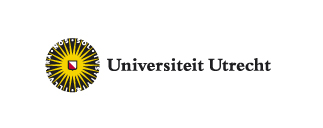This workshop aims to study legal proof and evidence from an interdisciplinary perspective, by discussing computational, legal and cognitive models of proof with attendants from a wide variety of fields including psychology, philosophy, artificial intelligence and law.
In the context of criminal law, the study of evidence is often equated with the study of the law of evidence, the legal rules that govern the admissibility and use of evidence in court. However, the study of evidence should also include the study of rational proof, the reasoning about the facts of a case. There are three important approaches to rational proof: arguments, statistics and narratives. The aim of this workshop is to compare and integrate these three approaches to rational proof, and to discuss their characteristics from logical, statistical, psychological and legal perspectives. Thus, we want to provide a clear approach to legal proof, which is both rationally well-founded and cognitively feasible, and which also respects the legal constraints of evidence and proof.
For more information please see the original workshop proposal.
Talks
Introduction to the workshop: 6 questions about rational legal proof - [slides]
Henry Prakken, Department of Information and Computing Sciences, Utrecht University & Department of Legal Theory, University of Groningen
Tutorial on argumentation - [slides]
Henry Prakken
Tutorial on stories - [slides]
Floris Bex, Department of Information and Computing Sciences, Utrecht University
Tutorial on Bayesian networks - [slides]
Martin Neil, Department of Computer Science, Queen Mary, University of London
Tutorial on evidence in common law
Paul Roberts, School of Law, University of Nottingham
Tutorial on evidence in continental law
Thomas Weigend, Institut für ausländisches und internationales Strafrecht, Universität zu Köln
A judicial perspective on Rational Legal Proof I
Diederik Aben, Supreme Court of the Netherlands
A judicial perspective on Rational Legal Proof II
Anne Ruth Mackor, Department of Legal Theory, University of Groningen
Jelte Hielkema, Court of Appeal Arnhem-Leeuwarden
A Bayesian Account of Argument Strength
Ulrike Hahn, Department of Psychological Sciences, Birkbeck, University of London
Frank Zenker, Department of Philosophy, Lund University
Bayesian Networks in forensic reasoning
David Lagnado, Cognitive, Perceptual, and Brain Sciences Department, University College London
Building Bayesian Networks for Legal Evidence with Narrative
Charlotte Vlek, Department of Artificial Intelligence, University of Groningen
Heuristics in legal proof
Henry Brighton, Center for Adaptive Behavior and Cognition, Max Planck Institute Berlin
Bayes in legal proof
Marjan Sjerps, Korteweg-de Vries Institute for Mathematics, University of Amsterdam
Arguments from and about Bayesian networks
Jeroen Keppens, Department of Informatics, King’s College London
Sjoerd Timmer, Department of Information and Computing Sciences, Utrecht University
An analysis of justification styles in Dutch criminal verdicts I
Lonneke Stevens, Department of Criminal Law and Criminology, VU University Amsterdam
An analysis of justification styles in Dutch criminal verdicts II
Peter van Koppen, Department of Criminal Law and Criminology, VU University Amsterdam
Miss Rate Neglect in Legal Decision Making
Christian Dahlman, Faculty of Law, Lund University
To Catch a Thief with and without Numbers
Bart Verheij, Department of Artificial Intelligence, University of Groningen

